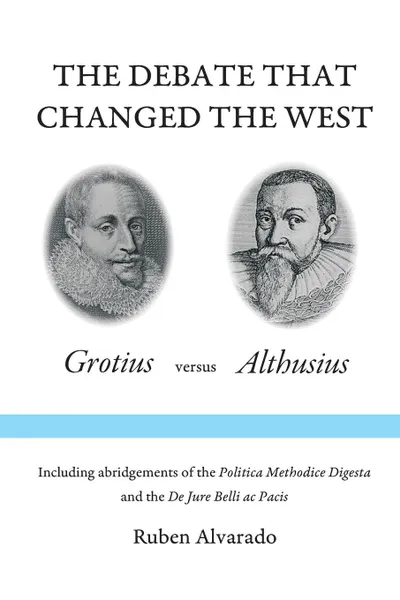The Debate that Changed the West. Grotius versus Althusius 12+
📕 At the dawn of the modern age a debate took place that would determine the further course of Western and thus world civilization. This debate did not take place in any assembly or debating chamber. It took place in the hearts and minds of the trend-setting intelligentsia of the day.Two figures engaged in this debate, acting as signposts at the crossroads which materialized in the late 16th and early 17th centuries, when a decision loomed and a path had not yet irrevocably been embarked upon. They functioned at the time and place destined to be the stage upon which this decision would become apparent: in and around the Dutch Republic in its struggle for freedom from the Spanish monarchy. They shared the same inheritance, constraints, and influences; the one fashioned it in a way that proved a resounding success which would be received as orthodoxy, the framework of right-thinking people for centuries to come; the other in a way that, although offering a coherent and constructive alternative, languished in obscurity, only in our day receiving renewed interest from the scattered flock of academics and churchmen (and women) who either make the knowledge of such things their business, or share a wistfulness for and inkling of this world we have lost.The one is Hugo Grotius, world renowned, the so-called “Father of International Law.” Although the appropriateness of such an appellation has been drawn into well-deserved doubt in our time, what should not be in doubt is the paradigma...
Мнения
